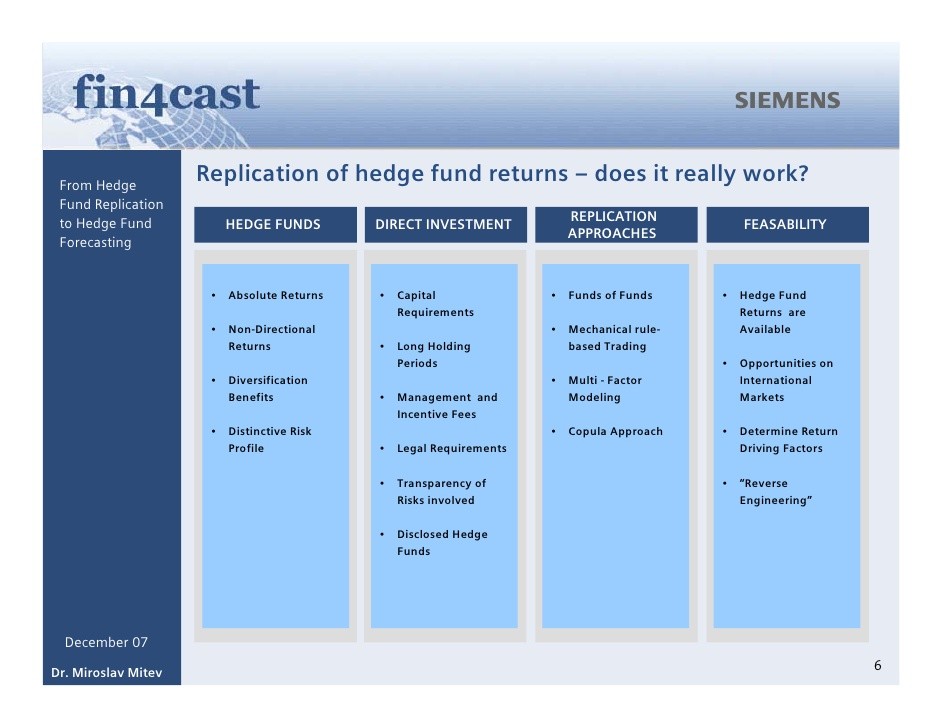What Is a Hedge Fund How Do Hedge Funds Work
Post on: 17 Сентябрь, 2015 No Comment

NEW YORK ( TheStreet ) — Hedge funds have been one of the fastest growing investment vehicles over the course of the last two decades. However, for many individual investors who cannot invest in hedge funds. these funds appear to operate in a cloak-and-dagger manner, and remain an enigma.
Nonetheless, hedge funds do have an impact on the individual investor — both directly and indirectly. So let’s peel back the hedge fund onion and expose what makes hedge funds unique and how those funds’ activities can affect the market and you.
First, What Are Hedge Funds?
Originally, hedge funds were designed to enter into long/short transactional strategies like the ones I described in Five Arbitrage Techniques Every Investor Needs to Know . Over time, hedge funds have perverted the original concept of arbitrage and are now just very highly leveraged private investment vehicles.
Hedge funds have several characteristics that distinguish them from separately managed investment accounts (like the ones I manage) or mutual funds. Here are some of those distinctions that individual investors should be concerned with:
Hedge funds are structured as limited partnerships.
A limited partnership has two types of owners: a general partner (typically, the hedge fund manager) and the limited partners (the investors). The limited partners/investors have no say in the day-to-day management of the hedge fund. Limited partnerships are a pass-through entity, which is to say that the entity itself is not taxed but the income and expense is passed onto the general and limited partners.
Hedge funds charge investors not only an asset management fee but an incentive fee.
Sometimes this is referred to as the 1&20 fee structure. The asset fee, say it is 1%, is a flat charge on the assets of the hedge fund. The incentive (or performance) fee is earned by the hedge fund manager if the hedge fund makes money. This is a very important aspect of the hedge fund and one that I will discuss later in greater detail.
Hedge funds can operate in a domestic (U.S.) environment or an offshore environment.
- The hedge fund and its manager are not required to register with the SEC or a state regulatory body.
- Reporting to investors is sporadic, delayed and limited in nature.
- Hedge funds can obtain favorable leverage, financing and brokerage rates.
- In order to invest in a domestic hedge fund you must be an accredited investor
Hedge Fund Incentive Fees and You
If the hedge fund starts its first year with $100,000,000 and ends that year valued at $125,000,000, the hedge fund manager will be eligible to share in a percentage of the fund’s earnings. So if the incentive fee is 20%, then the hedge fund manager will earn 20% times the difference between $125 million and $100 million, which is $5 million ($125 million less $100 million multiplied by .20).
So why should an individual investor care about these incentive fees?
To earn these potentially huge amounts of money, hedge fund managers will take huge risks — many of which are highly leveraged — in the hope that their big bets pay off. By taking these huge levered risks, hedge funds will push stocks, bonds, commodities and other securities to extreme levels (either up or down). All too often these days, some (not all) of these hedge funds’ piling on activity is referred to as bubbles. An individual investor could be impacted as the ramp up occurs, by getting sucked in to the trade. Or when the hedge funds head for the exits, it’s the individual investor who is often caught holding the bag (see Liquidity Crisis Goes Global and Goldman Hedge Fund Investors Pull $3 Billion ).
Two notorious names that come to mind are Long-Term Capital Management and Amaranth Advisors. Both racked up huge incentive fees for years then went on to lose a substantial amount of their investors’ money in a short period of time.
Some unscrupulous hedge fund managers will play the game racking up huge incentive fees and then once they have a down year they will close the fund and start a new one with fresh investor money.
Hedge Fund Taxation and You
One can argue — as do some members of the U.S. Congress — that all individual tax payers carry the burden of hedge fund managers and their investors’ beneficial tax rates. Why? Simply put, the U.S. Treasury needs to raise the money it’s not getting from those big hedge fund gains from somewhere.
This is an emotional and political issue, so rather than take sides I will merely state the main arguments and how they impact the individual investor:
Incentive fees earned by hedge fund managers may be taxed as capital gains (it really depends on the character of the income earned by the limited partners) rather than ordinary income.

The discrepancy in tax rates between capital gains and ordinary income is quite large.
What if those hedge fund managers’ incentive/performance fees were taxed at an ordinary income rate? Then taxes could be reduced to non-hedge fund investors.
The other side of the argument is that these amounts are not significant and the character of the income is just being allocated and not transformed.
Individual investors cannot directly deduct investment expenses and interest against their investment income, regardless of the character of the income.
Individual investors have to put this on tax form Schedule A and may be subject to limitations. However, hedge fund managers can deduct certain expenses as ordinary business losses. Again, arguments can be made both ways, but in the end, individual investors seem to get the short shrift.
Hedge Fund Interest, Leverage and You
Interest and leverage work hand-in-hand and they are at the center of the hedge fund business model. Hedge funds deploy large levels of leverage and seek to do so at the lowest rate of interest. Individual investors beware. Here is what you need to know:
When individual investors invest on margin they are subject to Federal Reserve Regulation T. This is covered in greater detail in Understanding Leverage .
Under Regulation T, an individual investor can obtain a 2-to-1 leverage ratio. However, hedge funds are able to obtain a lot more leverage. How? By structuring offshore loans or entering into complex derivative contracts such as swaps, hedge funds can negotiate leverage ratios which are multiples of 2-to-1. And in the case of Long-Term Capital Management, leverage approached infinite levels.
Again, why should an individual investor care about this activity?
When brokers make margin calls, reduce leverage to hedge funds or the hedge funds get redemptions from their limited partners, then they go into liquidation mode. When this occurs hedge funds will sell stocks and other assets with reckless abandon in panic mode.
While it does not necessarily explain all of the recent market weaknesses in both the equity and credit markets, these leveraged liquidations will exacerbate market declines. This adds to market volatility and can create panic. The individual investor who tends to be more long-term oriented can get hurt in the collateral damage of hedge fund liquidations and deleveraging.
How Hedge Funds Get Better Margin Rates
Any investor who desires to borrow money from a broker-dealer will pay interest at a margin rate to borrow funds. Individual investors will pay the going rate posted by the broker.
Right now, Morgan Stanley (MS ) is charging 7.25% for margin loans. Hedge funds on the other hand can negotiate rates. Typically, these rates are a spread of about 25 to 50 basis points over LIBOR (London Interbank Offered Rate). Right now, the one-month LIBOR is about 2.85%, putting the total margin rate to about 3.10% to 3.35%.
How Short-Selling Benefits Hedge Funds
Any investor who short sells a stock will receive cash proceeds from the stock loan associated with the transaction, which will then be used to collateralize the stock borrow. Interest is then earned by the broker-dealer on the short proceeds. This is referred to as the short interest rebate (see How Short Selling Works ). Hedge funds will receive some of that short rebate, while individual investors will not see a dime of the rebate. This makes short selling advantageous to hedge funds relative to individual investors.
Hedge Funds and Your Portfolio
While there may be some unscrupulous hedge fund managers, most are highly ethical. The point of this lesson was to point out how the individual investor may be affected by hedge fund operations. As an individual investor, with this raised level of awareness, the next time action is taken by hedge funds, you will have a better sense of how it may impact your investments — especially in short periods of time (see How to Trade Off of Unusual Activity ).














